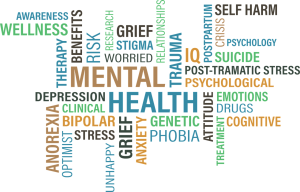Facebook has transformed the way people interact, offering a platform where individuals can connect, share, and engage with others globally. However, as social media evolves, discussions surrounding Facebook’s influence on mental health, social behavior, and emotional well-being have intensified. While some praise its ability to strengthen relationships, others criticize its role in fostering anxiety, loneliness, and social comparison. How does Facebook impact psychological and social well-being, and what does research suggest about its effects?
Facebook’s Role in Shaping Social Behavior
From reconnecting long-lost friends to facilitating online communities, Facebook has played a significant role in modern social interactions. A recent survey on Facebook’s relevance highlights how different age groups engage with the platform, shaping their perceptions of social connectivity. While older users view Facebook as a tool for maintaining relationships, younger audiences often experience it as a source of validation and digital identity.
The Dual Nature of Facebook’s Psychological Impact
- Positive Psychological Effects
- Maintaining Relationships: Facebook allows users to keep in touch with family and friends, regardless of physical distance.
- Emotional Support: Online communities provide a support system for individuals facing mental health challenges, chronic illnesses, or shared experiences.
- Self-Expression: The platform enables individuals to express their thoughts, achievements, and experiences, contributing to self-identity and personal growth.
- Negative Psychological Effects
- Social Comparison and Low Self-Esteem: Studies have shown that excessive social media use can lead to unrealistic comparisons, negatively affecting self-perception and mental well-being. A psychological analysis discusses how Facebook fosters a curated version of reality, often leading users to feel inadequate.
- Anxiety and Depression: The pressure to gain likes, comments, and validation can contribute to increased anxiety and depression, particularly among younger users.
- Addictive Usage Patterns: The platform’s algorithm-driven content keeps users engaged for prolonged periods, potentially leading to digital addiction and social withdrawal.
The Science Behind Facebook’s Impact on Mental Health
Scientific research has explored the psychological consequences of Facebook usage in depth. A peer-reviewed study suggests that while social media platforms like Facebook enhance perceived social connectivity, excessive usage can also contribute to feelings of isolation. The study indicates that passive consumption—such as scrolling through others' posts without interaction—can have detrimental effects on mental well-being.
Facebook’s Role in Social Interaction Trends
- Digital vs. In-Person Communication: Facebook has made digital interaction the norm, sometimes replacing traditional face-to-face conversations. While this has led to increased global connectivity, it has also contributed to a decline in deep, meaningful in-person interactions.
- Changing Relationship Dynamics: Online friendships often differ from real-life relationships. While Facebook fosters connections, it can also lead to surface-level interactions that lack emotional depth.
- Echo Chambers and Social Polarization: The platform’s algorithm promotes content that aligns with users’ existing beliefs, reinforcing ideologies and sometimes limiting exposure to diverse perspectives.
How to Use Facebook Mindfully
Given Facebook’s psychological effects, developing mindful usage habits can help users balance the benefits and challenges of social media engagement:
- Limit Screen Time: Setting time restrictions can reduce dependency on digital interactions.
- Engage Actively: Rather than passively scrolling, engaging in meaningful conversations enhances the positive aspects of Facebook.
- Curate Content Consumption: Following uplifting, educational, or inspiring pages can contribute to a healthier online experience.
Conclusion
Facebook’s psychological impact on social interactions is complex, offering both benefits and challenges. While it enhances connectivity, provides emotional support, and fosters self-expression, its influence on self-esteem, mental health, and real-world relationships cannot be ignored. Understanding its effects and adopting mindful social media habits can help users navigate the platform’s psychological implications effectively.






